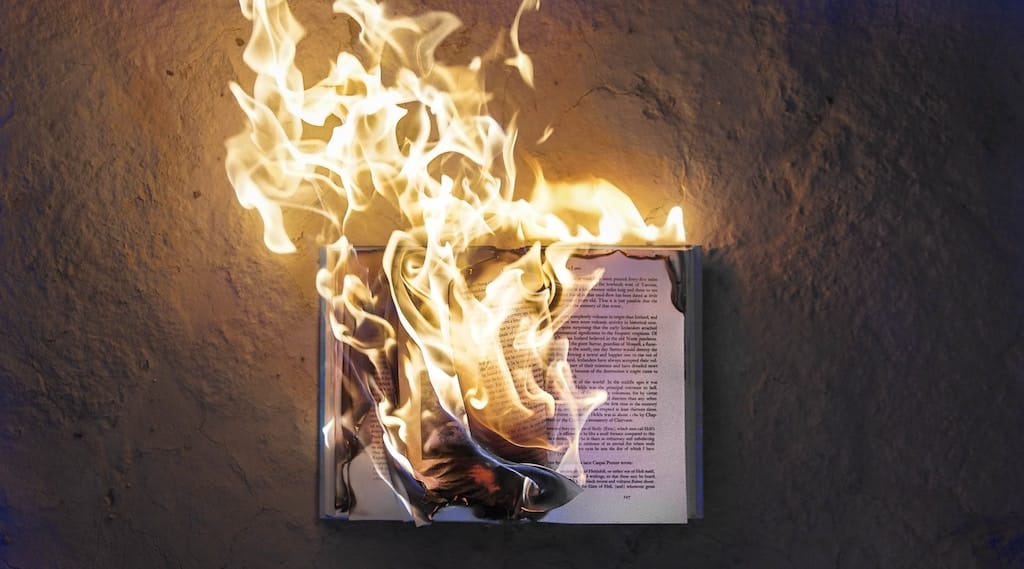
Students at Georgia Southern University made headlines earlier this month for burning books by a Latina author who spoke on their campus about race and white privilege. While a majority of college students don’t condone book burning, they agree with the university’s assessment that book burning falls within students’ First Amendment rights.
A new survey of 2,000 undergraduates finds that more than three-quarters (77%) of students say it’s never OK to burn books. A small minority of students say it’s OK when you find a book’s contents inappropriate (16%), when you disagree with comments the author has made (11%), or when you disagree with a book’s argument (11%). But across lines of gender, race, and political leanings, a majority of students say burning books is not acceptable.
While students overwhelmingly say burning books is an unproductive form of anti-intellectualism (81%), a majority also say it’s a protected form of free speech (78%). There’s even broad agreement among students of different genders, races, and political leanings.
Students Overwhelmingly Say Book Burning is Protected by Free Speech
Should students who burn books be punished, or is it a protected form of free speech?
Almost half (47%) of students say books that contain offensive material should not be banned from college libraries. But 42% say books containing guidelines for making a bomb should be banned. Fewer students support banning books that contain Nazi propaganda (25%), and even fewer support banning books that contain racism (9%) and homophobia (7%). Just 3% of students say books that criticize white privilege or contain LGBTQ themes should be banned.
There are stark divides when it comes to banning certain types of books from college libraries, though. White students (52%) are more likely than black (39%), Hispanic (42%), and Asian (43%) students to say no books should be banned from college libraries. Black students are twice as likely as white students to say that books containing racism should be banned (14% vs. 6%), and more likely to say the same about Nazi propaganda (31% vs. 22%).
At the same time, Republican students are significantly more likely than Democratic students to say no books should be banned (56% vs. 35%). In the same vein, Republicans are less likely than Democrats to say books containing guidelines for making a bomb (36% vs. 53%) and Nazi propaganda should be banned (18% vs. 35%).
Republicans are More Likely to Say Offensive Books Shouldn’t be Banned from College Libraries
Do you think books that contain the following should be banned from college libraries? Please choose all that apply.
However, Republican and Democratic students agree that having books and speakers on campus that represent a diverse set of ideals is more important than ensuring that students aren’t offended. Overall, a strong majority (93%) of students say it’s more important to have diverse books and speakers on campus.
To receive regular updates about this study, as well as other key college student insights, sign up here.
__________________________
Methodology: This survey was designed and conducted by College Pulse. Interviews were conducted among a sample of 2,000 full-time and part-time students attending four-year colleges or universities in the U.S. who are part of College Pulse’s American College Student Panel.




